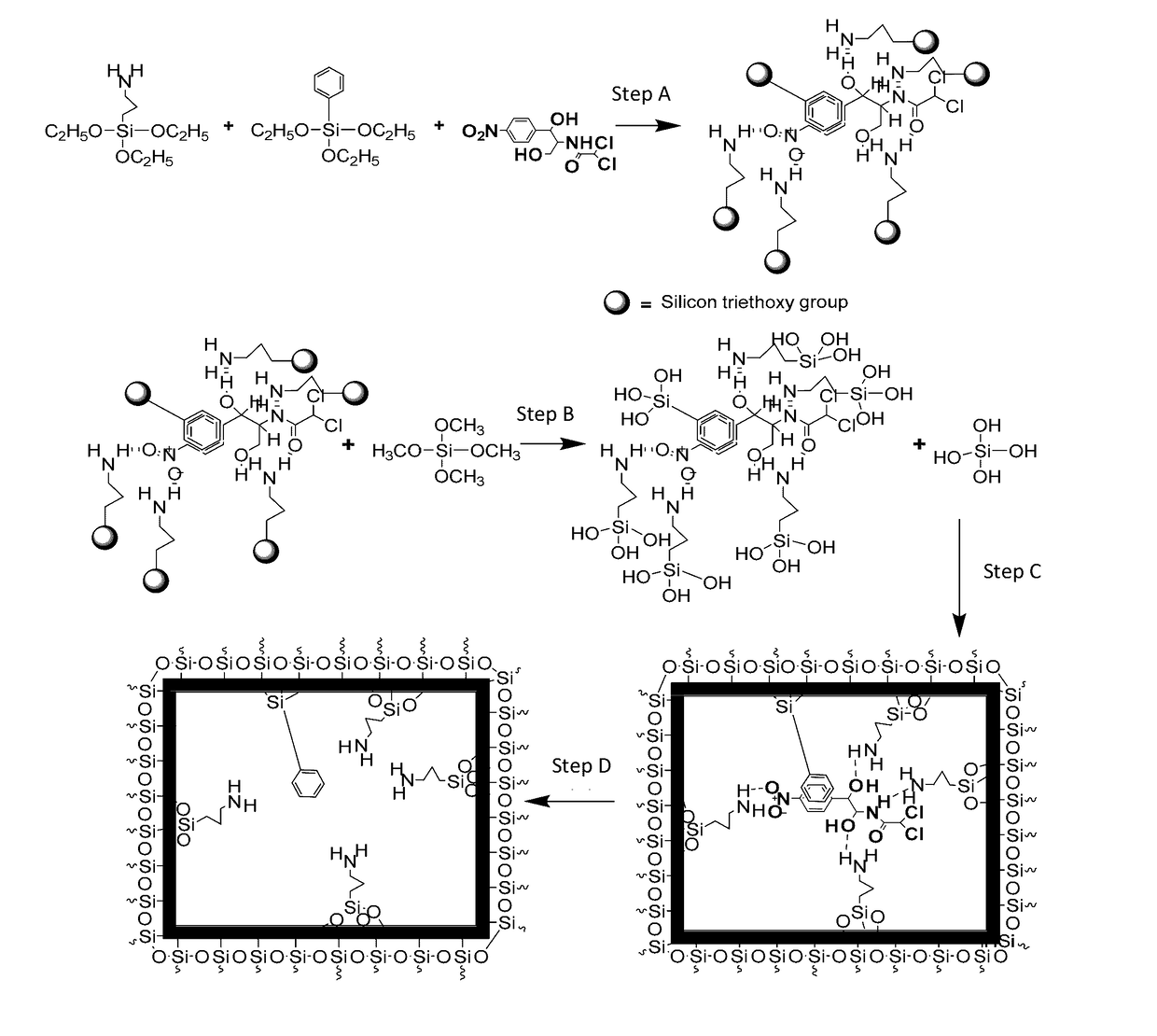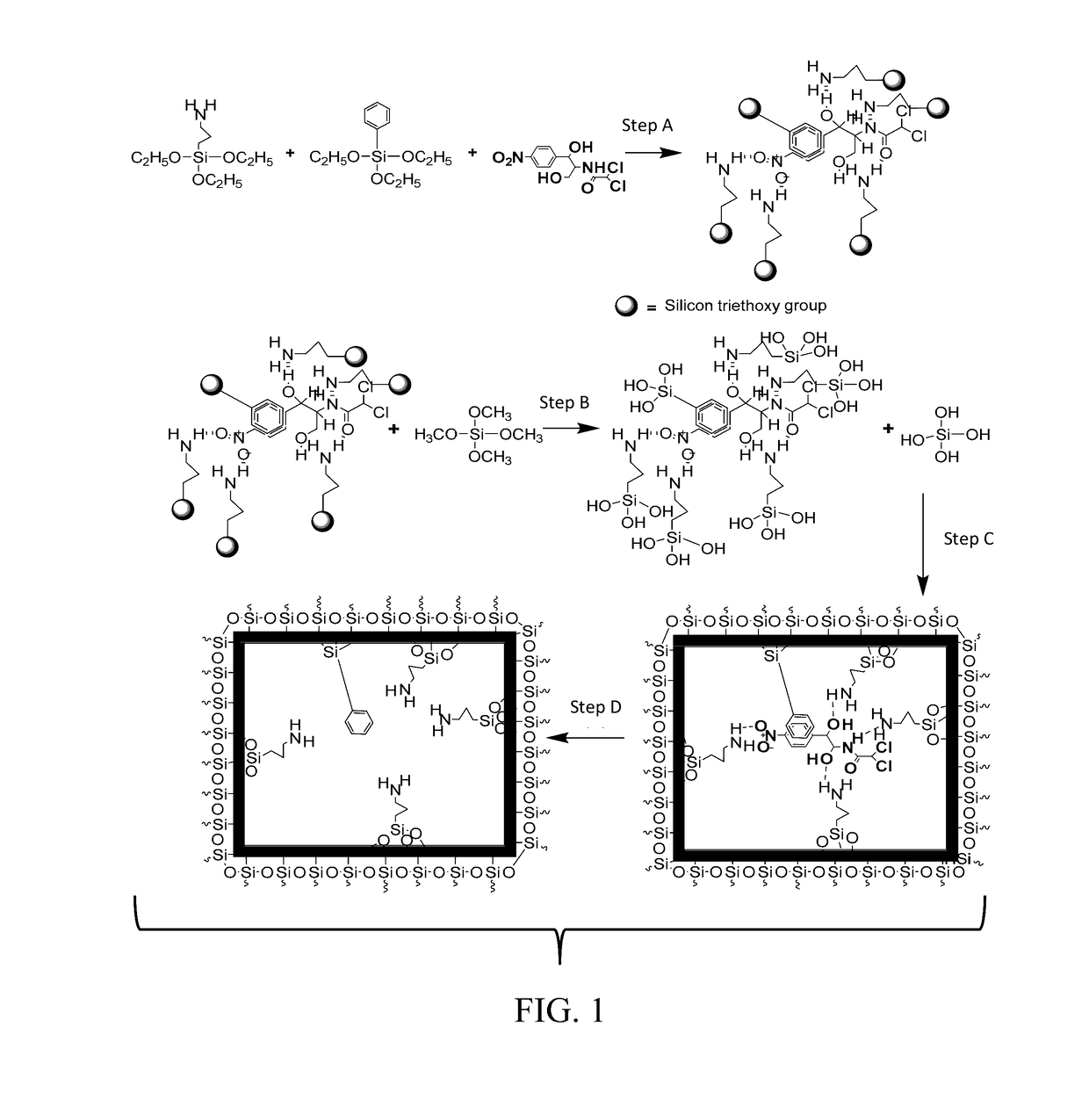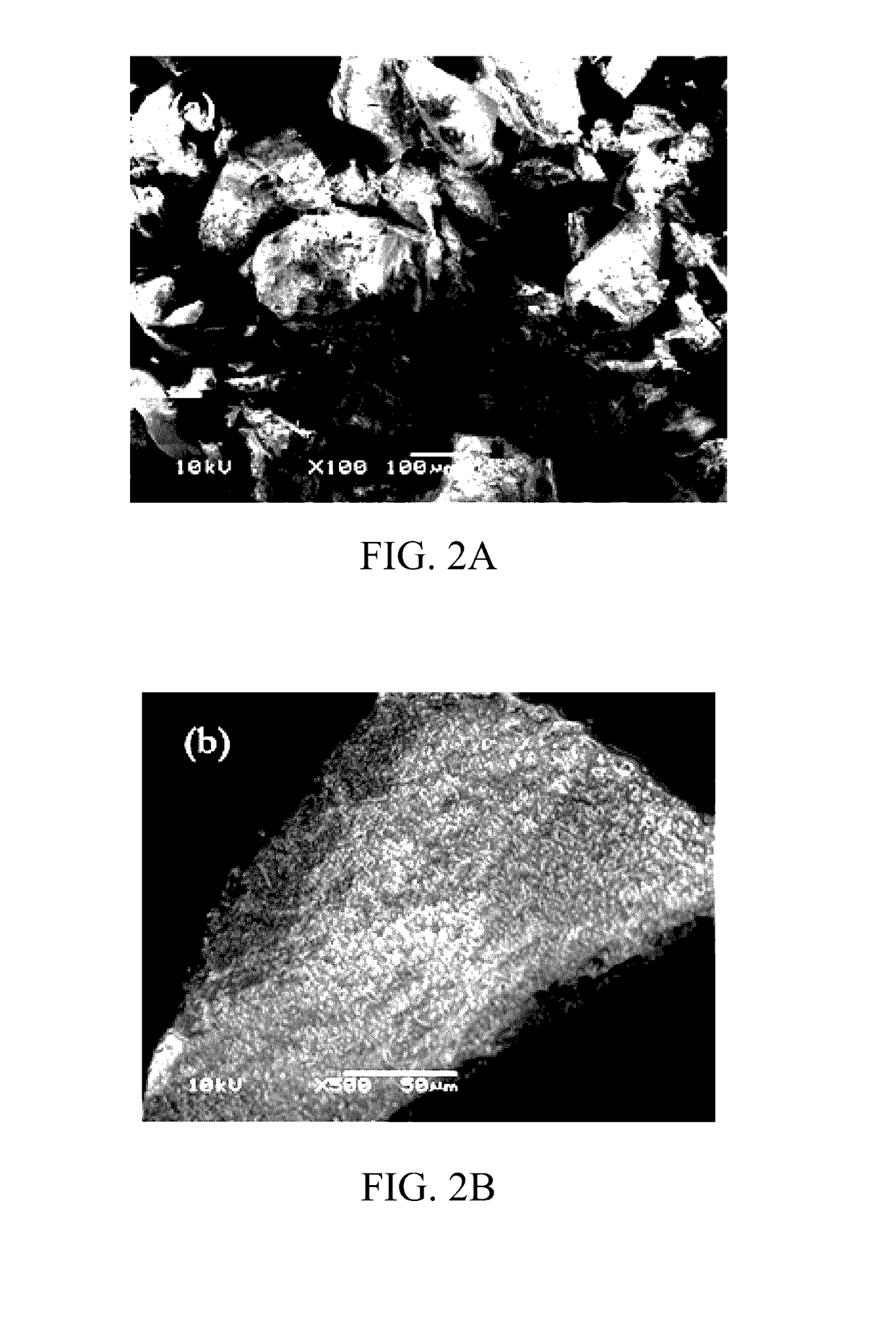Materials and methods for the detection of trace amounts of substances in biological and environmental samples
a technology of biological and environmental samples and materials, which is applied in the direction of testing dairy products, other chemical processes, instruments, etc., can solve the problems of antimicrobial resistance, cap is also associated with potentially serious toxic effects in humans, and detection is often difficult, so as to achieve the best degree of recovery, inhibit the performance of organically synthesized mips, and the selectivity of the method is superior.
- Summary
- Abstract
- Description
- Claims
- Application Information
AI Technical Summary
Benefits of technology
Problems solved by technology
Method used
Image
Examples
example 1
Preparation of Sol-Gel MIP and Sol-Gel NIP
[0048]Preparation of Chloramphenicol Complex with Functional Precursors
[0049]The synthesis scheme of CAP imprinted sol-gel MIP is shown in FIG. 1. The self-assembled complex between the CAP template and the sol-gel precursors, 3-APTES and TEPS were obtained by vigorously mixing 250 mg of CAP, 0.8 g of 3-APTES, 0.8 g of TEPS, and 4 mL of isopropanol together followed by sonication for 30 min. The mixture was incubated at room temperature for 6 hr so that a 3D complex with distinct stereo-chemical orientation between the template and the sol-gel precursors forms via hydrogen bonding.
[0050]The schematic process presented in FIG. 1 comprises four steps, including (a) complexation of sol-gel functional precursors (e.g., 3-APTES and TEPS) with CAP template; (b) acid-catalyzed hydrolysis of crosslinking sol-gel precursor; (c) simultaneous hydrolysis of functional precursors and condensation of hydrolyzed precursors to form a 3D sol-gel network with...
example 2
Characterization of Sol-Gel MIP and Sol-Gel NIP: SEM
[0060]The CAP-imprinted sol-gel MIP sorbent as well as the NIP control sample were characterized using scanning electron microscopy (SEM). The SEM images are presented in FIGS. 2A-2D.
[0061]The surface morphology of both the imprinted and non-imprinted particulates appeared to be identical at lower magnification (100×); however, at higher magnification (500×), the imprinted surface demonstrates a sponge-like, porous, and roughened surface morphology, while the non-imprinted control shows a smooth, glassy surface at the same magnification.
example 3
Characterization of Sol-Gel MIP and Sol-Gel NIP: FT-IR
[0062]To study the presence of various functional groups and the chemical linkages within the sol-gel MIP and sol-gel NMIP sorbents, Fourier transform infra-red spectroscopy (FT-IR) was employed. FIGS. 3A-3C show the FT-IR spectrum of (a) the sol-gel MIP, (b) the sol-gel NIP, and (c) the CAP template, respectively.
[0063]The spectral features observed in FIGS. 3A and 3B around 1038-1047 cm−1 were attributed to Si—O—Si stretching vibrations. The bands around 787-792 cm−1 represent Si—O vibrations. The bands around 1595 cm−1 are resulted from nitro phenyl group of the sol-gel precursor, 3-APTES. Bands at 698 cm−1 and 739 cm−1 were attributed to another sol-gel precursor, TEPS.
[0064]The absence of any features of CAP as shown in FIG. 3C in both the sol-gel MIP and sol-gel NIP strongly suggests the successful quantitative removal of the template molecules from the sol-gel MIP.
PUM
| Property | Measurement | Unit |
|---|---|---|
| Composition | aaaaa | aaaaa |
| Concentration | aaaaa | aaaaa |
| Size | aaaaa | aaaaa |
Abstract
Description
Claims
Application Information
 Login to View More
Login to View More - R&D
- Intellectual Property
- Life Sciences
- Materials
- Tech Scout
- Unparalleled Data Quality
- Higher Quality Content
- 60% Fewer Hallucinations
Browse by: Latest US Patents, China's latest patents, Technical Efficacy Thesaurus, Application Domain, Technology Topic, Popular Technical Reports.
© 2025 PatSnap. All rights reserved.Legal|Privacy policy|Modern Slavery Act Transparency Statement|Sitemap|About US| Contact US: help@patsnap.com



